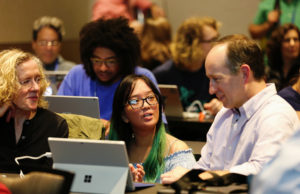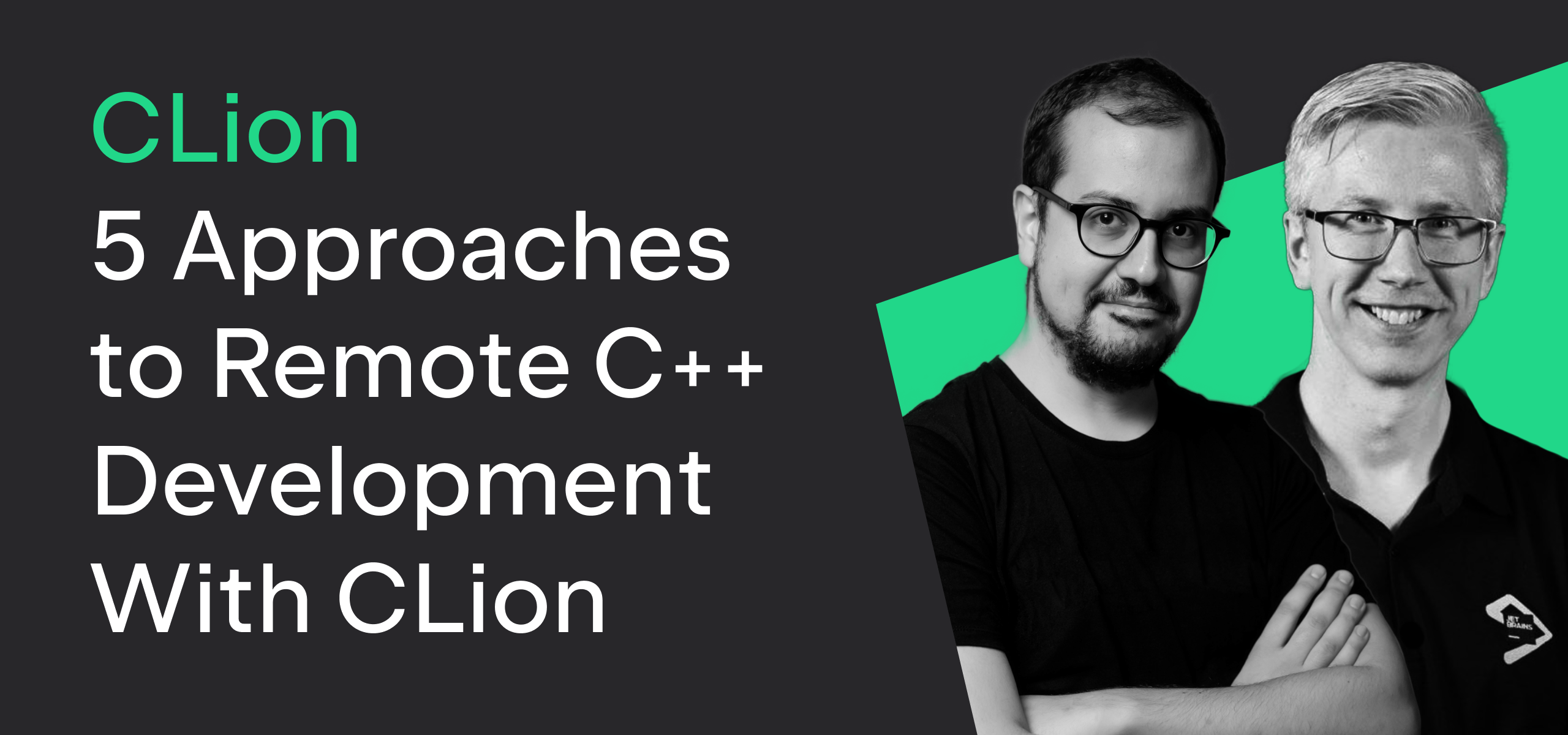A taste of C++ on Sea - promo video -- C++ on Sea
For a taste of the C++ on Sea experience we made this little video. Enjoy!
C++ on Sea 2022 is back by the sea
by C++ on Sea
March 11-13, Online
March 16-18, Madrid, Spain
March 23-28, Croydon, London, UK
March 30, Kortrijk, Belgium
May 4-8, Aspen, CO, USA
May 4-8, Toronto, Canada
June 8 to 13, Brno, Czechia
June 17-20, Folkestone, UK
September 12-18, Aurora, CO, USA
November 6-8, Berlin, Germany
November 16-21, Búzios, Rio De Janeiro, Brazil
By philsquared | Jun 20, 2022 11:40 AM | Tags: None
For a taste of the C++ on Sea experience we made this little video. Enjoy!
C++ on Sea 2022 is back by the sea
by C++ on Sea
By Blog Staff | Jun 20, 2022 01:53 AM | Tags: None
 Thank you to everyone who has already responded to the CppCon 2022 Call for Submissions! We love the strong set of high-quality submissions we've received so far again this year, and more are still coming in as we approach the talk submission deadline this Friday.
Thank you to everyone who has already responded to the CppCon 2022 Call for Submissions! We love the strong set of high-quality submissions we've received so far again this year, and more are still coming in as we approach the talk submission deadline this Friday.
If you have been thinking of submitting a talk proposal, you still have a few days! Remember that this year the conference is again fully on-site and fully on-line, closely coordinated, just like last year. So we encourage talk submissions for all parts of the conference... just let us know whether you prefer to speak on-site, on-line, or either.
More CppCon news will be coming soon, including opening registration and announcing the pre- and post-conference classes. Stay tuned!
By Blog Staff | Jun 18, 2022 09:10 AM | Tags: None
 CppCon 2022 is just three months away! It's hybrid again this year, with a full on-site part together with a tightly coordinated full on-line experience, just like last year. Watch for registration to open in a few days.
CppCon 2022 is just three months away! It's hybrid again this year, with a full on-site part together with a tightly coordinated full on-line experience, just like last year. Watch for registration to open in a few days.
In the meantime, here's the latest update -- a call for volunteers, including a grant program:
CppCon 2022 Call for Volunteers and Volunteer Grant Program
by Brett Searles
From the announcement:
Be a part of making CppCon 2022 an exciting event. Please join us as a volunteer. Building on the success of last year’s hybrid conference, we’ll need both onsite and online-only volunteers.
... For more information about volunteering and the Volunteer Grant Program, please see our Volunteer page.
Join a great team and be a part of history making in the C++ community, please complete the CppCon 2022 Volunteer Application Form. There will be other steps after completion, we will contact you to assist you with setup for the conference.
By Adrien Hamelin | Jun 17, 2022 01:43 PM | Tags: None
Come see them.
Early Access to C++Now 2022 Videos
by Anastasia Kazakova
From the article:
C++Now is one of the most academic events in the C++ calendar. Up in the mountains for a week in Aspen, Colorado, attendees dive into all kinds of profound C++ topics, from new language features and proposals to libraries and tools. C++ chats start at breakfast and continue until late at night in the bar. As the conference describes itself, the C++Now participants pushe C++ to its limits and let the community know what C++ will look like tomorrow and what we can do with C++ now!
By Adrien Hamelin | Jun 17, 2022 01:40 PM | Tags: community
Will you join?
C++ on Sea is back by the sea for 2022!
by Phil Nash
From the article:
A great line up of speakers. A great set of pre-conference workshops. And a great location...
By Adrien Hamelin | Jun 17, 2022 01:39 PM | Tags: None
 Will you join?
Will you join?
Join the Webinar – 5 Approaches to Remote C++ Development With CLion
by Anastasia Kazakova
From the article:
Join us on Tuesday, July 26, 2022, 3:00 pm – 4:30 pm UTC (check other timezones) for our free live webinar, 5 Approaches to Remote C++ Development With CLion...
By Meeting C++ | Jun 10, 2022 04:04 AM | Tags: meetingcpp events community
Two weeks ago Meeting C++ organized an event centered on sharing information on how to prepare and give talks. With the goal being to level the playing field for everyone but also make it easier to start speaking. You can watch the lightning talks and the panel online.
Supporting new speakers and great talks
by Jens Weller
From the article:
This event supports the ongoing call for talks of Meeting C++ and other conferences. So for Meeting C++ 2022, submit your talk until Sunday, June 12th! As conferences and life has changed over the last 2 years, Meeting C++ wants to give everyone interested in speaking a hand on how to get started and motivated. Scott Meyers did once share in the second part of his Meeting C++ keynote in 2014 some of his thoughts on "preparing materials for the modern age" and a few years later CppCon has hosted some classes for speakers to improve their talks. But not much has come available for the general public as information on how to create and give technical talks. With this event I aimed at producing a first set of tips and topics for interested speakers to view for inspiration.
By rwdougla | Jun 9, 2022 01:26 PM | Tags: None
On Monday, June 13th, Matt Godbolt will be presenting "C++'s Super Power" for the Chicago C/C++ Users Group . This marks our return to in-person meetings with our first hybrid event.
June 2022 Chicago C++ Users Group Meeting
by the Chicago C++ User Group
About the meeting
For full event details, please see out website event page.
Thanks to our sponsors, attendance is free with food and drinks provided.
RSVP for in-person attendance at our Meetup page. Space is limited, so register soon! We hope to see you there!
By Adrien Hamelin | Jun 7, 2022 01:35 PM | Tags: community
Were you there?
C++Now 2022 Trip Report
by Timur Doumler
From the article:
From May 1 to May 6, 2022, I attended the C++Now conference in Aspen, Colorado. This was my third time speaking at C++Now (I also attended in 2016 and 2019), and in my opinion it was the best edition of C++Now so far!
By Meeting C++ | May 26, 2022 07:36 AM | Tags: speaking meetingcpp events community basics
Meeting C++ organized an event centered around sharing material on creating better talks and presentations for C++:
Technical Speaking about C++
by Jens Weller
About the article:
This event will focus on the process of creating technical talks for the C++ community. Various speakers will share their views on how to submit, prepare and give talks to the C++ community in the form of lightning talks.